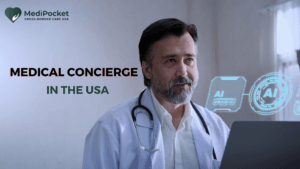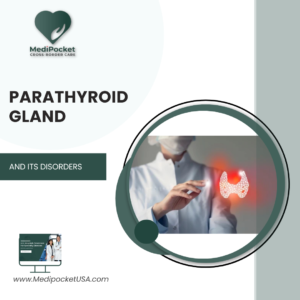Seeking a Second Opinion has always been viewed as a guilt-trip process where people are burdened with the thought that they are betraying their initial physician or Doctor. Whereas, countless health providers recommend their patients to get a Second Opinion for better understanding of their disease.
While a second opinion is considered to be a healthy option for many patients, including Cancer ones, it comes with the psychological and emotional aspects that are overlooked by many.
In this blog, we will discuss the emotional and psychological impact of seeking a Second Opinion.
Why should you seek a Second Opinion?

Seeking a second opinion in healthcare is a critical and responsible step for several important reasons:
Medical diagnoses can be complex, and there is room for error. Obtaining a second opinion can help ensure that your condition has been accurately diagnosed. This is especially crucial in cases of serious illnesses like cancer or chronic conditions.
Different doctors may recommend different treatment options based on their expertise and experience. A second opinion can help you explore various treatment plans, their benefits, and potential side effects. It enables you to make an informed decision about your healthcare.
In some cases, the first opinion may not consider the latest advancements or innovative treatments. A second opinion may introduce you to new approaches that could be more effective or less invasive
Medical errors and misdiagnoses can occur. Seeking a second opinion helps mitigate the risks associated with incorrect diagnoses, unnecessary surgeries, or inappropriate treatments.
In complex medical cases, especially those involving rare diseases or intricate conditions, different specialists may have varying perspectives and knowledge. A second opinion can provide a more comprehensive understanding of your condition.
What is the Psychological and emotional impact of seeking a Second Opinion?
Seeking a second opinion in healthcare can have various psychological impacts on patients and their families. Here’s an elaboration of these psychological effects:
- Anxiety and Stress: Patients often experience increased anxiety and stress when considering a second opinion. This is because the process can feel overwhelming, and the uncertainty surrounding one’s diagnosis or treatment options can be mentally taxing.
- Empowerment: Seeking a second opinion can empower patients. It allows them to take an active role in their healthcare decisions, giving them a sense of control and ownership over their well-being. This empowerment can reduce feelings of helplessness and anxiety.
- Validation: A second opinion can either confirm the initial diagnosis and treatment plan or provide a different perspective. In cases where the second opinion aligns with the first, it can validate the patient’s confidence in their healthcare providers and reduce anxiety.
- Peace of Mind: If the second opinion aligns with the first, it often brings a sense of relief and peace of mind. Patients can move forward with their treatment plan with more confidence, knowing that they’ve explored all available options.
- Increased Confidence: Even if the second opinion differs from the first, it can increase a patient’s confidence in the thoroughness of their healthcare decision-making. Knowing that they’ve considered multiple perspectives can bolster their trust in their medical team.
- Clarity: A second opinion can provide additional information and explanations, leading to better clarity about the condition and treatment options. This clarity can reduce confusion and alleviate stress.
- Reduced Regret: Seeking a second opinion can help patients avoid the regret associated with not exploring all possible options. This proactive approach can provide peace of mind and lessen feelings of “what if.”
- Enhanced Doctor-Patient Relationship: Discussing the decision to seek a second opinion with the primary doctor can improve the doctor-patient relationship. It shows that the patient is engaged and invested in their health, and many healthcare providers appreciate the opportunity to collaborate.
- Family and Social Support: Involving family or friends in the decision to seek a second opinion can provide emotional support. Sharing the process can reduce feelings of isolation and stress.
- Coping Strategies: The process of seeking a second opinion can equip patients with valuable coping strategies. These strategies can help patients better manage stress and anxiety not only during this process but also in their ongoing healthcare journey.
The psychological and emotional impact of seeking a second opinion is multifaceted. While it can lead to initial anxiety and stress, it often results in empowerment, validation, peace of mind, and improved clarity. It can also strengthen the doctor-patient relationship and provide patients with valuable coping skills to navigate their healthcare decisions.
Expert Consultation from the Top Hospitals
Why is Second Opinion the best in the United States?

A second opinion in the United States is highly regarded for several reasons, making it one of the best places for patients seeking additional medical advice and expertise. Here’s an elaboration on why second opinions in the United States are so highly esteemed:
- Access to World-Class Healthcare Facilities: The United States is home to some of the world’s most renowned healthcare institutions, including the Mayo Clinic, Cleveland Clinic, MD Anderson, and many others. These institutions offer state-of-the-art facilities and access to leading experts in various medical fields. Patients can tap into the expertise of specialists who are at the forefront of medical research and innovation.
- Multidisciplinary Approach: U.S. healthcare institutions often employ a multidisciplinary approach to medical care. This means that a team of experts from different medical disciplines collaborates to provide a comprehensive evaluation of the patient’s condition. This approach ensures that patients receive the most thorough and well-rounded second opinions.
- Advanced Diagnostic Technologies: The United States is known for having access to cutting-edge diagnostic tools and technologies. These advanced diagnostic tests can provide a more accurate assessment of the patient’s condition. From imaging techniques to genetic testing, patients can benefit from the most sophisticated diagnostic methods available.
- Diverse Medical Expertise: The U.S. medical community is diverse, with specialists in various fields. This diversity allows patients to seek second opinions from experts who are well-versed in their specific medical conditions. Whether it’s cancer, heart disease, neurological disorders, or rare conditions, patients can find specialists with the right expertise.
In conclusion, the United States offers a healthcare landscape that is distinguished by its world-class institutions, multidisciplinary care approach, advanced diagnostic technologies, diverse medical expertise, clinical trial opportunities, and a strong commitment to medical ethics. These factors collectively make the United States an ideal destination for seeking second opinions that can significantly impact patient outcomes and decisions.








